FINDINGS IN WISCONSIN HAVE IMPLICATIONS FOR STOCKINGS EVERYWHERE

In my last submission I discussed some basic genetic terms and concepts. This article will focus on Wisconsin’s muskellunge genetic management plan framework and finish with the results of one small genetics study.
An article written in 2010 by a myriad of Wisconsin Department of Natural Resources (WDNR) and University of Wisconsin-Stevens Point (UWSP) personnel and published in Fisheries, outlines the process. Titled “Implementation of Genetic Practices in a Muskellunge Propagation and Stocking Program,” researchers Martin Jennings, Brian Sloss, Gene Hatzenbeler, Jeffrey Kampa, Timothy Simonson, Steven Avelallemant, Gary Lindenberger, and Bruce Underwood address the potential of genetic risks associated with propagation of muskellunge in Wisconsin.
While this study focuses on Wisconsin’s musky program, the same concepts hold true anywhere muskellunge are stocked.
Fish are propagated and stocked for a number of reasons. Often, stocking is driven by public expectation. “To address the ongoing potential for genetic risks in Wisconsin muskellunge propagation program, the WDNR developed a comprehensive set of recommendations to conserve genetic diversity and evaluated the extent to which the recommendations can be implemented,” the study said. With over 700 muskellunge waters, Wisconsin is rich with opportunity often a direct result of stocking.
“Stocking has a long history in Wisconsin and is a highly visible component of the management program,” the report said. WDNR staff have been leaders and pioneers in the musky propagation field for a very long time. However, much of that excellent work was historically focused on producing the largest fall fingerling fish to maximize survival. Genetic concerns were not well understood due to historically cumbersome and very expensive techniques.
“Prior to widespread discussion and acceptance of genetic
この記事は Musky Hunter の August/September 2019 版に掲載されています。
7 日間の Magzter GOLD 無料トライアルを開始して、何千もの厳選されたプレミアム ストーリー、9,000 以上の雑誌や新聞にアクセスしてください。
すでに購読者です ? サインイン
この記事は Musky Hunter の August/September 2019 版に掲載されています。
7 日間の Magzter GOLD 無料トライアルを開始して、何千もの厳選されたプレミアム ストーリー、9,000 以上の雑誌や新聞にアクセスしてください。
すでに購読者です? サインイン
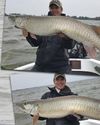
What can Current Do For You?
WATER FLOW IN LAKES IS SUBTLE AND OFTEN OVERLOOKED. BUT MUSKIES USE IT, SO WHY SHOULDN’T YOU?
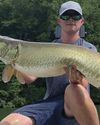
Mountain State Muskies In Spring
CATCH MUSKIES DURING TIMES WHEN NOTHING IS PREDICTABLE
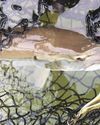
Winter Presentations For Southern Rivers
Winter has arrived, yet in the South it’s still mild enough to keep fishing with the exception of maybe a week or two of an Arctic front.

Tune Up For The Season Ahead
Have you started making your plans for the upcoming fishing year?
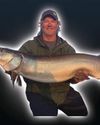
Rob Manthei
Guide Rob Manthei’s love for the Vilas/Oneida County region of northern Wisconsin is deeply rooted. His father and grandfather started taking him there on fishing trips when he was just two years old, and he began guiding full-time at the age of 25.
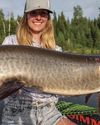
Find The Right Structure In Deep, Clear Water
With breathtaking scenery, vast amounts of water, and complex and diverse structure, clear water Canadian Shield lakes offer some of the most sought-after musky fishing in the world. A bucket-list destination for the passionate and determined angler, there’s something truly special about being in the sanctuary of the great Canadian Shield lakes.
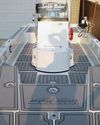
Multi-Species Or Bay Boat ... You Make The Choice
Is there really such a thing as a perfect musky boat? There are so many variables to choose from in the market today. Do I want a casting or trolling boat? Aluminum or fiberglass? Welded or riveted? Do I want a tiller, side console, dual console, or full windshield?
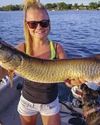
Region To Region
Region To Region
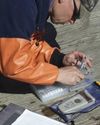
Genetic Study Yields Answers
STUDY SUGGESTS LEECH STRAIN IS NOT THE ‘SILVER BULLET’ FOR WISCONSIN MUSKY WATERS
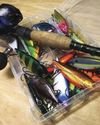
Crawling Crankbaits To Catch Cold Water Muskies
Crankbaits catch plenty of muskies during spring, summer and fall, but the key to catching ’skies in the very early cold water season on these lures involves some special tricks.